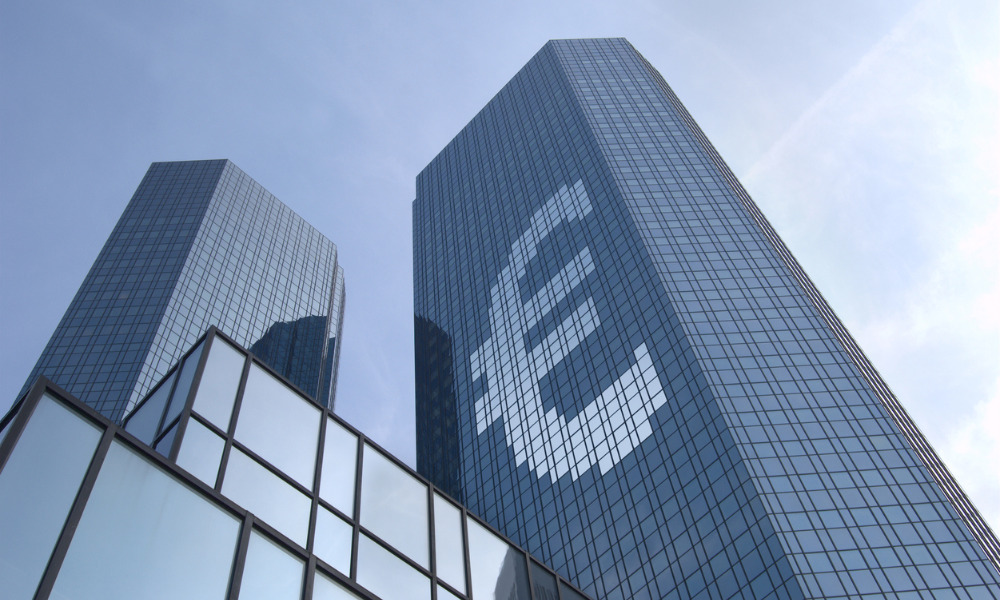

European stocks were muted on Tuesday as traders geared up for earnings from some of the world’s biggest corporations and key central bank rate decisions this week.
The Stoxx Europe 600 index was little changed at the open. Basic resources shares surged, with miners Anglo American and Rio Tinto gaining more than 3% as metal prices advanced after China’s latest stimulus pledge. Health-care stocks lagged, with Baye dropping 2.5% after cutting guidance. Among other individual movers, Unilever climbed as much as 5.1% after a sales beat, and French software maker Dassault Systemes plunged after underwhelming results.
U.S. equity futures edged higher after a mixed session on Wall Street, where the S&P 500 posted a modest gain while the Nasdaq 100 declined after a “special rebalance.” A gauge of emerging-market stocks jumped the most in three weeks. Treasury yields were flat and the Bloomberg Dollar Index declined for the first time in six days.
Key Federal Reserve and European Central Bank’s gatherings this week will be closely watched for signs policymakers may be reaching the end of the cycle of aggressive policy tightening. There were fresh reminders about the negative recessionary affects of continuous rate hikes with disappointing data from both the U.S. and euro area on Monday, though China’s vow to support its economy buoyed sentiment.
With predictions for a recession steadily receding over the past few months, the outlook for companies that make industrial equipment and heavy machinery, and move goods around, has improved significantly. The Dow Jones Industrial Average has risen 5% over the past month, outrunning both the S&P 500 Index and the tech-heavy Nasdaq 100, and is in the midst of its longest winning streak in more than six years.
Aside from the economic picture, global companies with a combined $27 trillion in value were set to report results, including giants Microsoft Corp., LVMH and Google parent Alphabet Inc. on Tuesday.
Technology shares in Hong Kong jumped 5% while a China property stock gauge was on course to post the biggest gain since December as the nation’s top leaders used a crucial Politburo meeting to flag more aid.
While the Communist Party’s top decision-making body fell short of announcing large-scale stimulus, it signaled more support for the troubled real estate sector, alongside pledges to boost consumption and resolve local government debt. That helped give bullish momentum for equity traders.
The offshore yuan also advanced to its strongest level in more than a week after the People’s Bank of China continued its support for the currency. The commodity-heavy Australian dollar, which is sensitive to China’s growth outlook, gained 0.3%.
Oil built on a surge that’s taken prices to a three-month high as optimism on China’s economy aided the outlook for energy demand just as the global market shows signs of tightening. Steel-making staple iron ore rose as much 1.9% in Singapore on Tuesday. Copper extended gains after closing up 0.8% on the London Metal Exchange on Monday. Wheat gained as Russia attacked one of Ukraine’s biggest Danube river ports.
The big question that comes next is whether the positive sentiment will be sustainable.
“It’s becoming more obvious that these longer-term measures have to be accompanied with the short-term measures,” Jennifer Kusuma, senior Asia rates strategist at Australia & New Zealand Banking Group Ltd., said on Bloomberg Television. During these early days, “it will be difficult in our view to see turnaround in the policy direction for longer-term priorities, but there is scope for policies to surprise to upside given how low expectations are.”
Key events this week:
Some of the main moves in markets:
This story was produced with the assistance of Bloomberg Automation.
--With assistance from Tania Chen and Esha Dey.

Relationships are key to our business but advisors are often slow to engage in specific activities designed to foster them.

Whichever path you go down, act now while you're still in control.

Pro-bitcoin professionals, however, say the cryptocurrency has ushered in change.

“LPL has evolved significantly over the last decade and still wants to scale up,” says one industry executive.

Survey findings from the Nationwide Retirement Institute offers pearls of planning wisdom from 60- to 65-year-olds, as well as insights into concerns.
Streamline your outreach with Aidentified's AI-driven solutions
This season’s market volatility: Positioning for rate relief, income growth and the AI rebound
